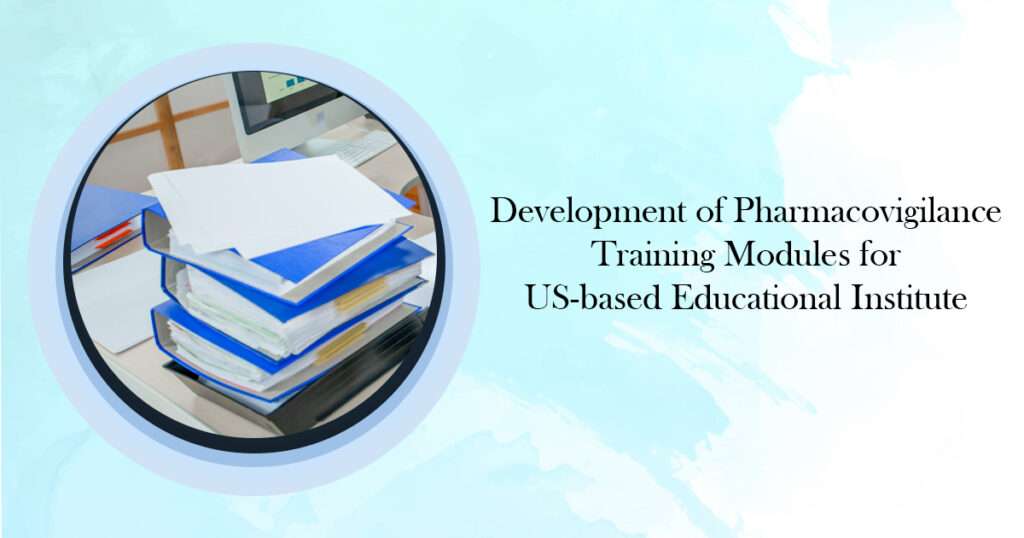Customer Requirement: A USA-based educational institute specializing in providing training courses to its subscribers was looking to develop a course on pharmacovigilance. This course would be the first of its kind for the educational institute and would aim to provide a robust foundational knowledge base of pharmacovigilance, including key activities, processes, and the regulations surrounding pharmacovigilance and drug safety.
Problem Statement: The institute had no prior knowledge of, or experience in, pharmacovigilance and required support from experts in this area who were aware of and had extensive experience in the pharmacovigilance domain. Indeed, pharmacovigilance centered around maintaining compliance with guidelines and international standards for drug & patient safety contributing towards public health. Therefore, it was important for the institute to partner with an organization who were aware of the guidelines and standards that govern pharmacovigilance on a global scale, including the discrepancies from region to region.
Key Objective: To develop 10 comprehensive pharmacovigilance training modules for the educational institute.
DDReg Solutions & Processes Adopted: The team of safety writers at DDReg shortlisted key topics to cover in the course based on their experience with pharmacovigilance guidelines. From this, they finalized 10 modules that would form the pharmacovigilance course. The team of safety writers coordinated closely with the Pharmacovigilance department at DDReg to incorporate practical and most recent pharmacovigilance information and concepts related to ICSR processing & submission, adverse event reporting, aggregate reports (PSURs/PBRERs/PADERs/DSURs), signal management, QPPV, drug safety systems, advanced technologies used in drug safety, and medical device vigilance (or materiovigilance) within the United States vs other stringent markets, like the European Union. The writing team also conducted in-depth and meticulous literature reviews to obtain information from articles in PubMed & Google Scholar, global pharmacovigilance guidelines & standards (ICH, GVP, etc), and other published material to ensure the modules had the most updated information. In these modules, the safety writing team incorporated quizzes and cases studies to ensure the reader of the module could check their understanding and be able to apply their knowledge. The safety writing team brought high quality writing experience and adopted stringent quality control processes, such as plagiarism checks using in-house software and running through a 3-level content check process (authoring – quality check – final review) to ensure high quality modules.
Business Impact: The educational institute was extremely satisfied with the quality of the modules & the overall course. It published the course on its website, making it available for users across the globe. DDReg had exceeded the expectations of the institute with their deep knowledge and experience of pharmacovigilance & high-quality writing skills and approached them for the development of potential modules & courses.

